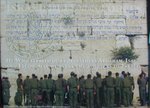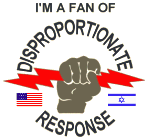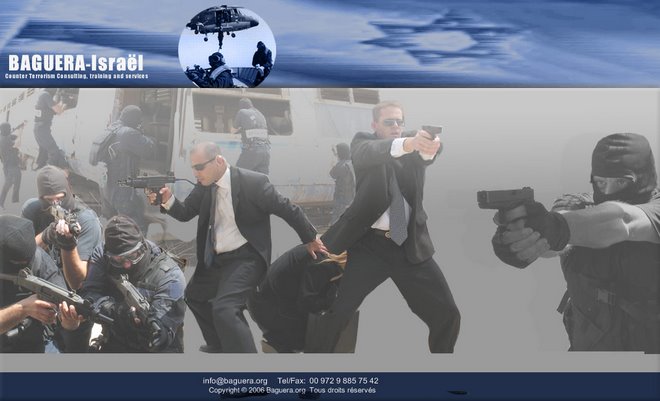Is Iran the puppet master in the Lebanon crisis? That is what the Israelis and American allege and they may be right. So what is Iran's game plan in provoking the war between Israel and Lebanon that has taken such a deadly toll?
 |
Why does Iran want negotiations? And on what issue? The first is Iran's nuclear ambitions. The UN Security Council passed a resolution in August threatening economic sanctions on Iran even as the latter promised to respond to a European package of incentives by Aug 22. Iran is continuing to expand its nuclear fuel activities. The West fears that Iran will use enriched uranium to make atom bombs while Tehran argues that it merely needs the fuel to run its power plants.
Upping the ante on the nuclear issue clearly made the Iranian parliament very nervous. For several months, they heard analysts suggest that America will use Israel to conduct strikes on Iran's nuclear plants. And for years, ever since the 1979 hostage crisis when US diplomats in Tehran were taken hostage, Iranians heard several American presidents pledging to bring about a regime change in Iran. The post 9/11 actions of Bush in Afghanistan, and particularly the overthrow of Saddam Hussein in Iraq, added a dollop of reality to American intentions in the Muslim world.
In order to force the US to agree to negotiations, Iran needed to show that it is a potent force to contend with in the Middle East. Ahmadinejad wanted to reclaim legitimacy for Iran on the world stage. For that, Iran had to ensure that the Americans abandoned their commitment to regime change. Short of engaging in war, how could Iran show its strength and weaken Israel, its challenger in the Middle East? Well, enter the Hezbollah, a Lebanese Shia group long supported by Iran with weapons. The Lebanon crisis has helped Iran accomplish three things.
First, the timing of Hezbollah's actions reflects one of Iran's objectives, namely, to deflect western (particularly US) attention from Iran's nuclear programme. The kidnapping of two Israeli soldiers took place just before the G8 summit in Russia where presumably the western powers were going to discuss curbs on Iran's nuclear ambitions. The Israeli attacks diverted summit attention.
Second, the larger goal for Iran seems to be to show the US that it is the regional power in the Middle East - it can create tensions and defuse them at will, and it is backed by nuclear capability. By tweaking the tail of Israel, America's closest ally in the Middle East, Iran is sending a message to Bush - negotiate or else you and Israel will be embroiled in an endless war.
Israel and America cannot afford to be embroiled in yet another conflict. The US is already over-extended in Iraq and to a lesser extent in Afghanistan. Israel has its hands full with the pullout from occupied areas of Palestine and cannot really face a long war on its northern flank.
Third, Iran used the Hezbollah to trap Israel in local conflicts and made it harder for the latter to continue as the regional hegemon.
How far has Iran succeeded and how do we measure success? One criterion would be to see if Israel failed in achieving its objective in south Lebanon. Israel's strategic goal, according to its military intelligence, was to force the Lebanese government to impose its authority over the Hezbollah, which controls the south. Israel has to wipe out the Hezbollah; anything less will be perceived as defeat for Israel. If that is the goal, then Iran has succeeded.
The Hezbollah continues to fire rockets at Israeli towns, while the central Lebanese government helplessly calls for UN help in imposing a ceasefire. The death of hundreds of Lebanese civilians has inflamed passions. Far from losing public support, Hezbollah is extolled by the Arab and Muslim world for standing up to a powerful regional power. Hezbollah has transformed itself into a strong fighting machine, capable of launching guerrilla style attacks on Israeli battalions. It spent the last six years, since Israeli withdrawal, preparing for just such a conflict by digging tunnels along the border. It is going to be much harder to inflict a crushing defeat, something that Israel is already in the process of learning as Hezbollah fighters launch rockets and disappear into the bunkers underground.
Another criterion to measure success is to see if western powers fight over the best course of action. A recent paper suggests that sanctions against Iran, which is one of the world's largest oil exporting nations, would hit European economies hard. Europe would lose some 13 billion euros in exports and 10 billion in imports each year, mainly in gas and petrol. If Iran were to stop exporting crude oil and gas, oil prices could reach $125 per barrel. Iran has very successfully used its economic clout to temper European actions by pitting Russia and France against America on the nature and timing of a ceasefire in Lebanon.
So, as things stand, Iran is trying to have its cake and eat it too. Unlike Libya's Muammar Gaddafi who had to abandon his effort to get nuclear capability in exchange for America's renunciation of a regime change in that country, Iran is trying to retain its nuclear programme and achieve recognition as a regional power. If the Lebanon crisis continues, then Iran may well achieve its goals.
































 While doing IDF (Israel Defence Forces) reserve duty on a mountain overlooking the
While doing IDF (Israel Defence Forces) reserve duty on a mountain overlooking the 





No comments:
Post a Comment